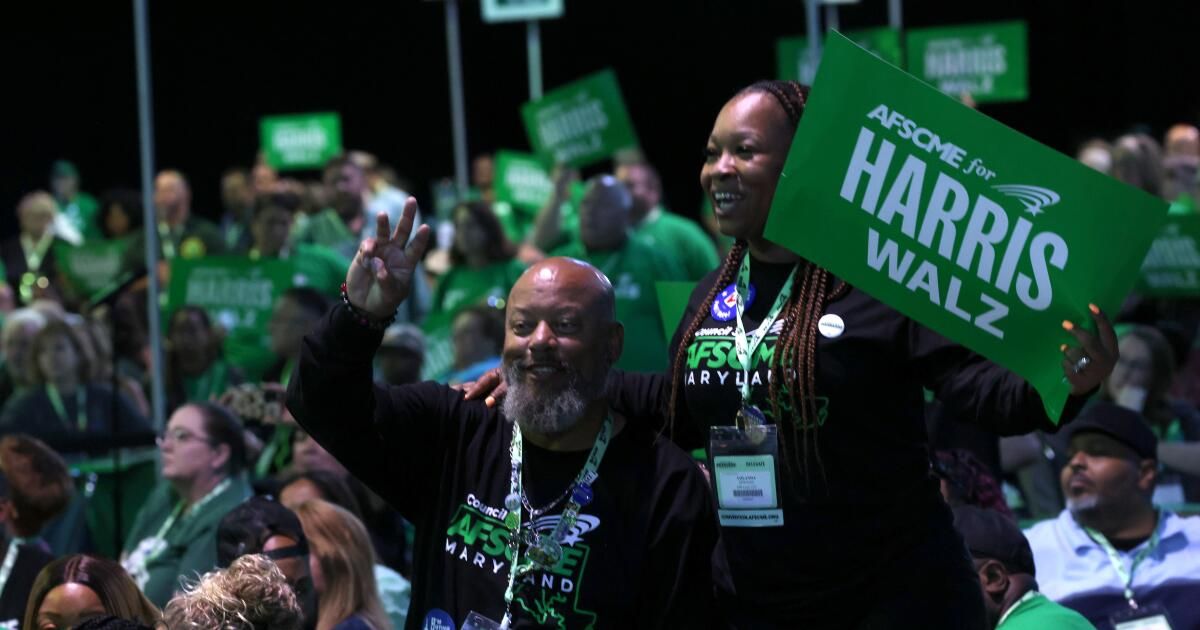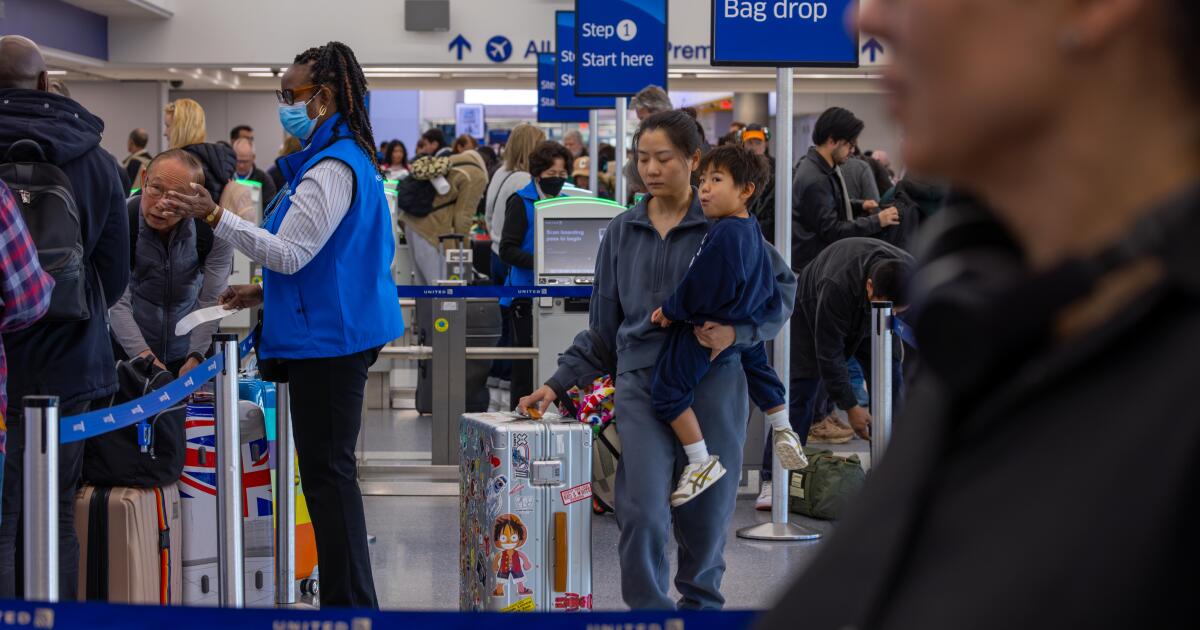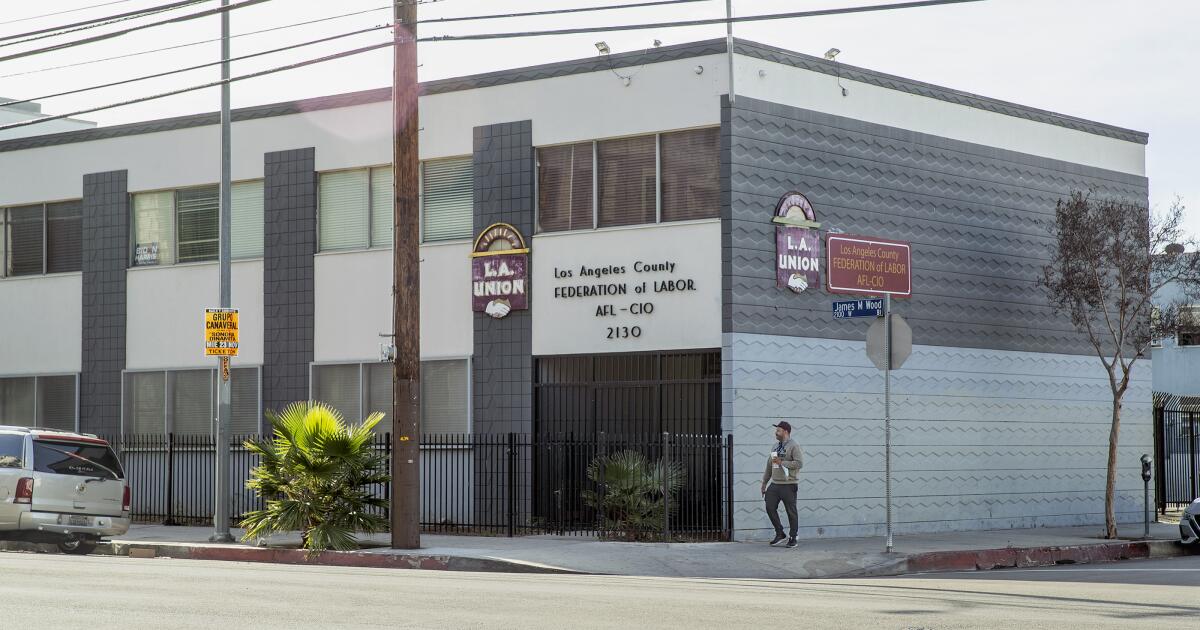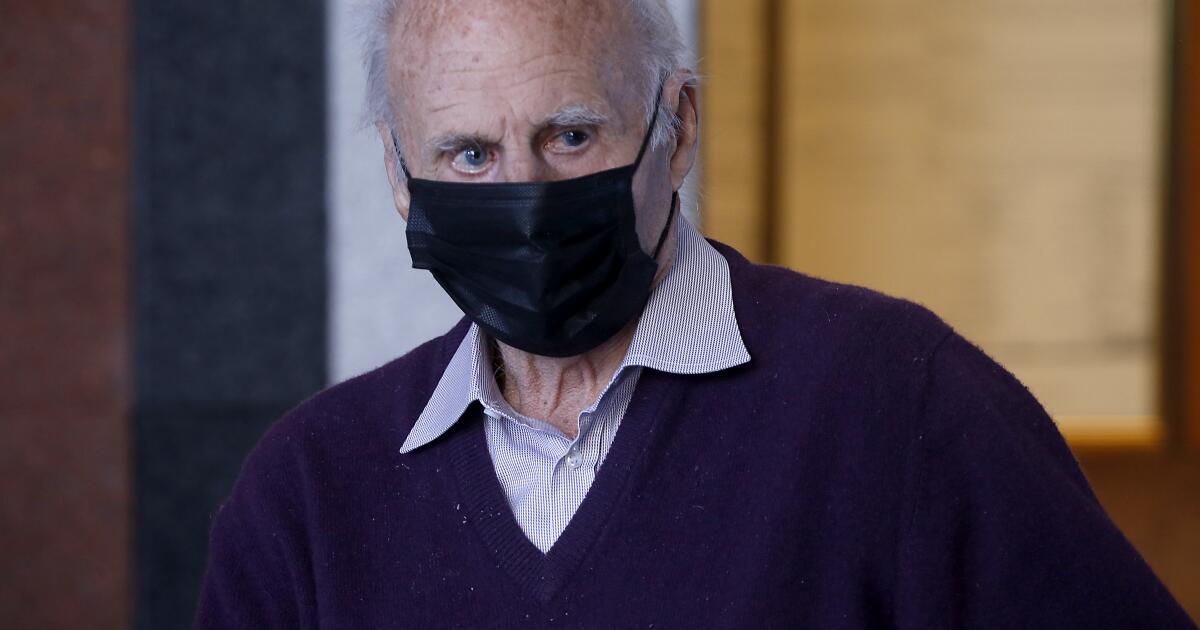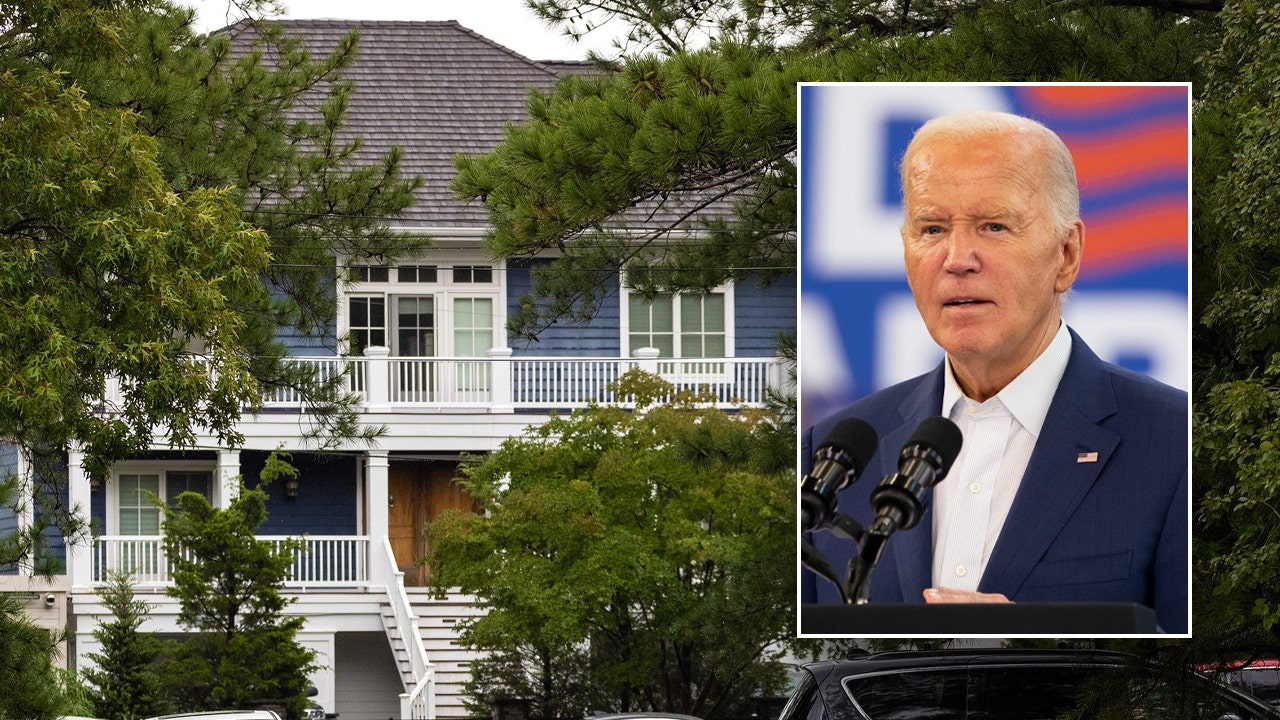Vice President Kamala Harris' entry into the presidential race has galvanized traditional Democratic voting groups and those not aligned with a political party, helping to widen Democrats' already large lead over former President Trump in California, a new poll shows.
Harris leads Trump 59% to 34% in the electoral-vote-rich Golden State, a 7-point larger margin than President Biden had earlier this year before he gave up his reelection bid late last month, according to the Berkeley Institute of Governmental Studies poll co-sponsored by The Times.
Driving the vice president's surge are the much higher levels of support Harris receives from younger voters, ages 18 to 29, whose support for Democrats increased by 23 percentage points, and from Black voters, whose support increased by 16 percentage points.
Other groups of California voters who traditionally lean Democratic also expressed higher levels of enthusiasm for Harris than for Biden: Support rose 11 points among liberals and 10 points among Latinos, according to the survey of likely voters, which was conducted online from July 31 to Aug. 11.
Harris, at a rally in Las Vegas on Saturday, has gained support among Latino voters in California, a good sign for her chances in crucial Nevada and Arizona.
(Jason Armond / Los Angeles Times)
“Harris has consolidated support among Democratic and Democratic-leaning voters in the state,” said Eric Schickler, co-director of the Institute for Governmental Studies. “Under Biden, you saw a lack of enthusiasm and engagement that was especially marked among young people and people of color in general. This looks much more like the numbers for Democrats in 2020.”
California is, of course, a deeply Democratic state, and Biden’s victory here was never in doubt when he was positioned as the Democratic nominee. Still, the poll reinforces what surveys have shown in more battleground states across the country, with Democrats and those who lean toward the party expressing support for Harris, who is 59, at higher levels than for Biden, who at 81 turned in a shaky performance in the June 27 debate that heightened doubts about his candidacy.
The Berkeley poll provided another piece of good news for Democrats: It showed that people who do not belong to a political party and who describe themselves as moderates favor Harris at significantly higher levels than Biden. Moderates in California said they would choose the Democratic nominee 59% to 31% over Trump. That puts Harris 12 percentage points ahead of where Biden stood in February, according to the poll. And among nonpartisan voters, the poll showed a strong lead for Harris, with 62% of California independents saying they support the vice president — a 17-point improvement over Biden’s standing in February.
That finding may surprise some analysts, since Biden was once seen as the strongest candidate among independents and ideological moderates.
“So far, those numbers are encouraging for her,” said Schickler, a political science professor at the University of California, Berkeley. “We know for a fact that Republicans will try to chip away at that support by trying to smear her as an extreme liberal from San Francisco. And we’re already seeing that.”
Harris could break new ground in multiple areas this year, potentially becoming the first woman and first person of Indian descent elected president. She would be the second Black president, after Barack Obama.
A slim majority of respondents said they thought Harris’s novel profile would be an advantage in the race, while 15% thought her race and gender would be a disadvantage. Just over a third of respondents said they didn’t know what impact being a woman of color would have on her chances of being elected vice president. (More than half of Republicans did not express an opinion on the matter.)
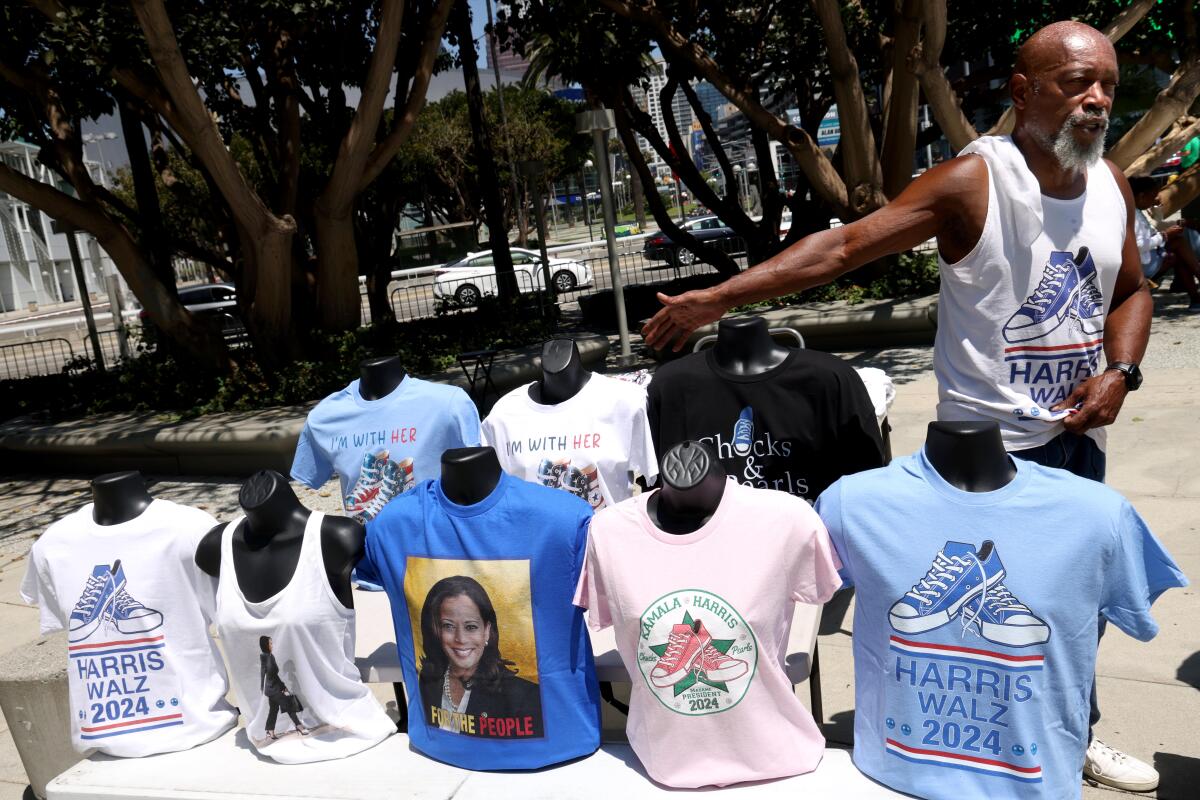
Ron Addison sells support T-shirts Tuesday outside the Los Angeles Convention Center, where Harris' running mate, Tim Walz, addressed an AFSCME membership convention.
(Genaro Molina / Los Angeles Times)
Black voters strongly supported Biden in 2020 but had been less enthusiastic about his reelection this year. Now, many Black voters have shifted back to the Democratic camp, the poll found: Harris leads Trump 74% to 15% among Black likely voters in California, and 11% say they have not chosen a candidate. That puts Harris 16 percentage points ahead of Biden’s position in February.
Similarly, Latino voters have begun to coalesce around Harris: 58% say they favor the vice president, compared with 34% who said they planned to vote for Trump. That puts the new Democratic standard-bearer 10 points ahead of where Biden held among Latinos earlier this year.
Schickler said the surge in Latino support in California could also bode well for Harris in battleground states like Arizona and Nevada, where Latinos make up a substantial share of the electorate.
Harris, a former San Francisco district attorney, state attorney general and U.S. senator, has seen her popularity wax and wane.
The poll shows that California Democrats have coalesced around her since she emerged as the party's nominee: 81% support her and only 11% say they would prefer another candidate. This coincides with a marked improvement in how Californians view the Democratic nominee. Just six months ago, their opinions of Harris were tied: 48% expressed a positive opinion of her and 48% negative.
In the new Berkeley Institute poll, 58 percent of likely voters in the state had a favorable opinion of the candidate, who grew up in the East Bay and studied law in San Francisco, while 40 percent expressed an unfavorable opinion.
Harris has benefited from a confluence of events, including Biden’s late withdrawal, which eliminated the possibility of a prolonged contest for the nomination. That meant the vice president ascended to the presidential nomination without the typical months-long drubbing from her party rivals.
“To some extent, I think there was also a way that Harris’ numbers were affected by this general malaise among Democrats around Biden and her association with him,” Schickler said. “This launch has allowed her to benefit from pent-up enthusiasm. And she’s done a good job of managing the launch, so she’s been able to capitalize on that.”
Harris’s choice of Minnesota Gov. Tim Walz as her running mate kept confidence alive among California Democrats. Among those surveyed, 56% described themselves as enthusiastic about Walz, while 25% said they were satisfied. Only 5% of the state’s Democrats expressed dissatisfaction with him.
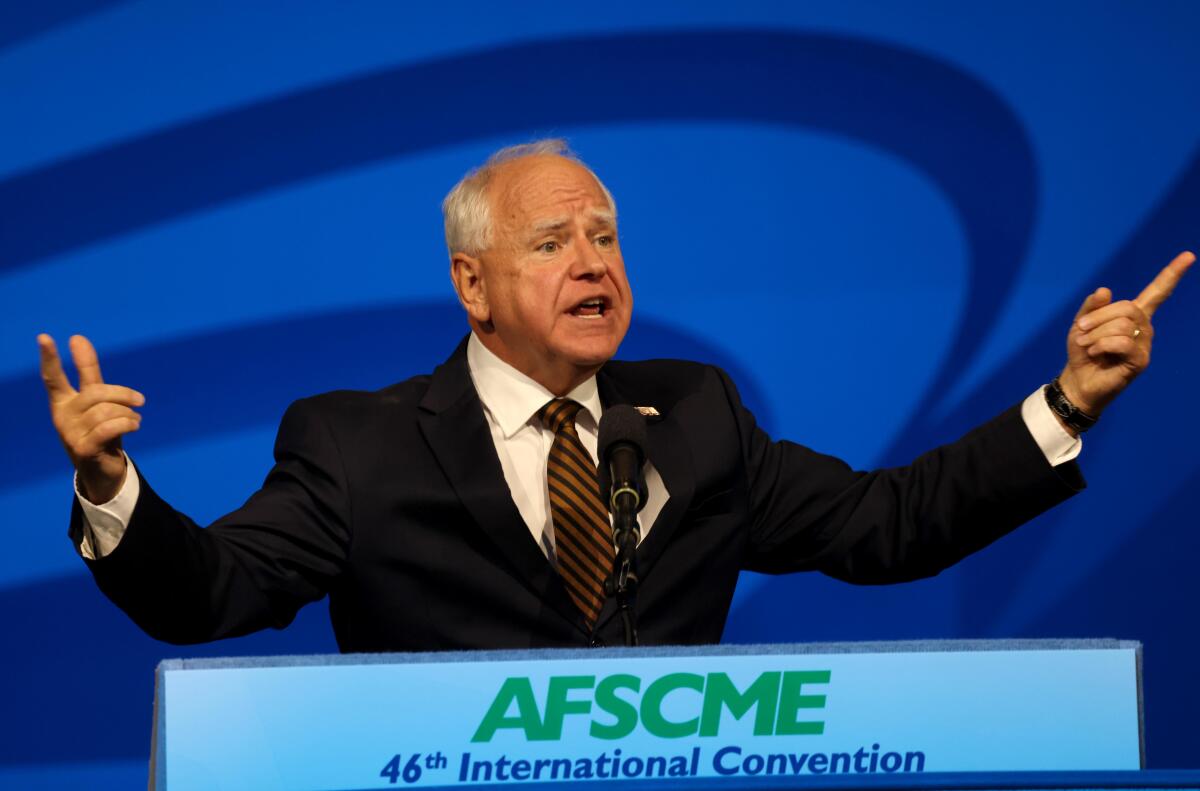
Tim Walz addresses unionized public employees from across the U.S. in Los Angeles on Tuesday ahead of the release of a poll showing recent gains for the Democratic ticket among California voters.
(Genaro Molina / Los Angeles Times)
The state's electorate remains deeply polarized not only over candidates but also over underlying issues, including the economy.
Among Harris supporters, 37% said they are better off financially than they were a year ago and 37% said their economic situation had not changed. Only 25% described themselves as worse off. In contrast, 81% of Trump voters surveyed said they are worse off financially than they were a year ago.
“I think there's a good deal of enthusiasm on both sides,” with voters giving more positive evaluations of the economy when a politician or party they support is in office, Schickler said.
The poll delivered bad news for another Californian, Robert F. Kennedy Jr. Fifty-nine percent of likely voters surveyed in the state had an unfavorable opinion of the independent presidential candidate, and 42 percent said they held that opinion “strongly.” Of the 23 percent who had positive feelings about him, only 4 percent said they had strongly favorable feelings.
The poll was conducted online in English and Spanish from July 31 to Aug. 11 among 3,765 Californians considered likely to vote in the November general election. Pollsters said the margin of error, while “difficult to estimate,” was about 2 percentage points for the entire sample and larger for subgroups.

